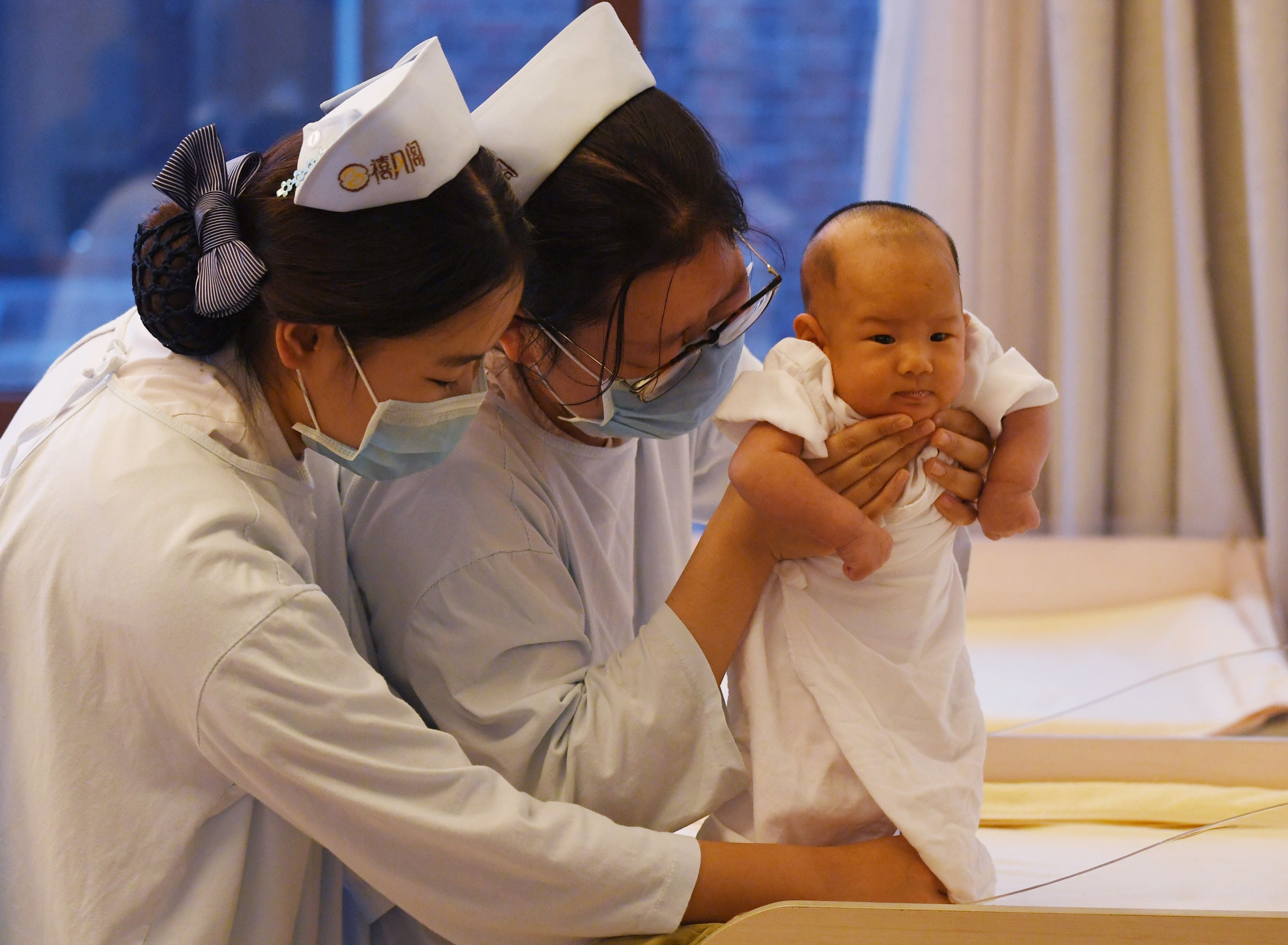China three-child policy: Radical relaxation of law announced by authorities
Move aims to tackle country's ‘ageing problem’, Chinese Communist Party-run media say

Your support helps us to tell the story
From reproductive rights to climate change to Big Tech, The Independent is on the ground when the story is developing. Whether it's investigating the financials of Elon Musk's pro-Trump PAC or producing our latest documentary, 'The A Word', which shines a light on the American women fighting for reproductive rights, we know how important it is to parse out the facts from the messaging.
At such a critical moment in US history, we need reporters on the ground. Your donation allows us to keep sending journalists to speak to both sides of the story.
The Independent is trusted by Americans across the entire political spectrum. And unlike many other quality news outlets, we choose not to lock Americans out of our reporting and analysis with paywalls. We believe quality journalism should be available to everyone, paid for by those who can afford it.
Your support makes all the difference.China will allow couples to have up to three children in the latest relaxation of its laws on family planning since the end of the “one-child policy” in 2013, according to state media.
The change was approved on Monday during a politburo meeting chaired by President Xi Jinping, official news agency Xinhua reported. The politburo also said China would implement a delay in the retirement age.
The measure was party of the Chinese government’s “strategy of actively coping with an ageing population”, Xinhua said, and would come with unspecified “supportive measures” – possibly a nod towards new incentives for couples to have more children.
China’s population is the largest in the world, but is now barely growing thanks in part to the one-child policy which was implemented from 1980, with a system of fines for violators and even forced abortions.
It's not clear precisely when the shift to a three-child policy will take effect, but state media said it was likely to be implemented in the current five-year policy-making period which started this year. The Global Times, a Chinese Communist Party-run newspaper, said the change “aims to improve China's population structure and actively respond to the country's ageing problem”.
In November 2013, China announced a partial policy relaxation of the one-child policy that allowed couples to have two children if one parent was themselves an only child. A further relaxation took place in 2016, allowing all couples to have up to two children.
China's once-in-a-decade census this month showed that the population was growing at its slowest rate since the 1950s, with data showing a fertility rate of 1.3 children per woman for 2020 alone, on par with ageing societies like Japan and Italy.
The census data from China’s National Bureau of Statistics showed that the population of the country has reached 1.41 billion, but at a growth rate just under 5.4 per cent in the past decade.
It also showed that the birth rate was still in decline since 2017 despite the fact that families were allowed to have a second baby during this period.
And the reaction online to Monday’s announcement of a three-child policy suggested the country’s birth rate issue was as much down to individual reluctance to have children as it was the government’s rules. Many complained that they could already not afford to have two children – or even one.
“I am willing to have three children if you give me 5 million yuan (£555,000),” one user posted on Weibo.
Join our commenting forum
Join thought-provoking conversations, follow other Independent readers and see their replies
Comments